by Angela Smith | Nov 14, 2015 | Writing
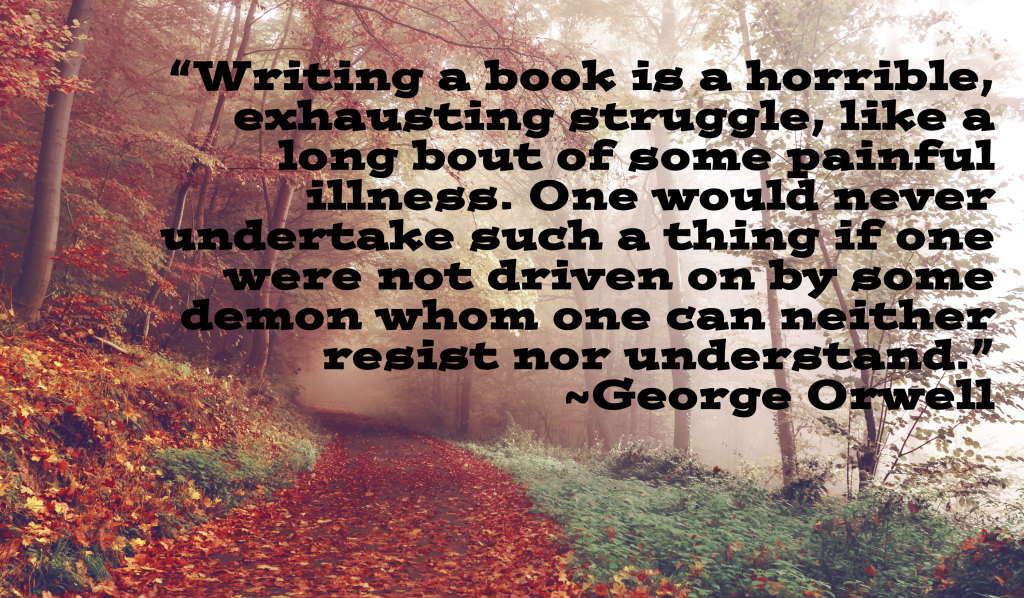
I admit today’s quote that I found to explain how my writing path is going is a bit dreary, which is why I chose the uplifting picture to go with it. Because writing, no matter what type of project, is a long and arduous task. You will have up days, you will have down days. You will have days that you feel like a failure no matter how many times people tell you they love your work.
If writing was easy, more people would stop talking about it and actually sit down and do it.
This quote is true. Some people actually love to write. It’s not that I don’t love it, but it is a struggle, and I do it because I’m driven to do it. And yet no matter how many “bad writing days” I have, I have many other good ones.
I got my edits back from my editor, so I’ve been writing and editing at the same time. Writing one story while editing another is probably not a good idea and never easy, but it’s how I work best. I’ve been trying to plot a lot, which is never a good thing for me. It never works out for me when I try to plot, and I’ve gotten stuck more times than I could admit when I try to plot. Even a simple plot outline tends to get me stuck, unless I’m very deep into my story already.
It’s important to go with what works for you. If you can’t start a story without a title, don’t listen to anyone’s advice about how you should do this or that first. Every writer is different. I keep telling myself that plotting is going to make my life easier, my story flow better, but I have more down days, more days where I struggle trying to tell a story, when I try to plot first. I wish it weren’t so. I don’t know how many plotters wish they were pantsers, but I know a lot of pantsers who wish they were plotters, me being one of them. I constantly have to remind myself that it doesn’t work for me, so stop trying to make it work.
This whole week was one of those times I felt like a failure, like giving up. And you will face days where you feel like a failure, feel like giving up. It’s hard to work full time and write, but then, it’s harder to give it up. Believe me, I know, I’ve tried it before and wasted years of struggle while not following my writing path.
So today’s writer’s tip is to keep going. Change your perspective if you must. And do what works for you! Me? I decided to get away from my computer, grab my notebook, and head outside.
by Angela Smith | Nov 7, 2015 | Writing
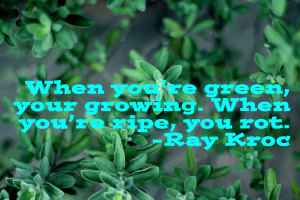
Writers should always be green and growing. Even those who have penned hundreds of novels or sold millions of copies should constantly be learning how to be better.
I believe the best way to grow is to read, and read a lot. Not so that you can steal other’s ways of writing, but to absorb their great knowledge. Stories and words, character arc and sentence structure, body language and emotion—reading how other writers do these can make writers more creative with their own.
No matter how much I think I might know about a certain writing topic, I love to read writer’s craft books to see how others do it and maybe learn something new. Even if I don’t take someone’s advice on plotting, I might learn something that helps me or reminds me.
That being said, I do have a few How-To-Write Books that I think all authors should have on their shelf. Here’s my top five:
1. On Writing, by Stephen King
Whether you love him or not, Stephen King is a master at his craft, and he knows how to tell a (frightening) story. His book is one of my favorites, because it speaks of his struggles as a would-be author before anyone knew who he was, and offers his own brand of advice. I can’t say enough about this book, but it helped me to be proud of who I am and what I write. He’s a genius, plain and simple, but he’s had his own struggles. I think admitting those is what makes him the brilliant writer he is.
2. Prosperity for Writers: A Writers Guide to Creating Abundance, by Honoree Corder
I love positive thinking books, and find them good reminders of how to change my thoughts. This book was much more than just a “think positive” book. It offers exercise, suggestions, and backstory of the writer’s life to help you recognize, understand, and get out of your own limiting beliefs and change your thought patterns when it comes to your writing.
3. Take Off Your Pants!: Outline Your Books for Faster, Better Writing by Libbie Hawker
Ugh, another plotting book you might think. It took me a while to buy this and read it, because of my fear of plotting and all the other books I’ve read in the past. I can’t tell you how many plotting books I’ve read that I haven’t been able to follow. And some that I’ve liked and will never read again. I love plotting books, love learning how other people plot. I am not a plotter, and usually when I plot I get way stuck! But this book was a nice epiphany on how to get my novel plotted, without really having to “plot” in the way I’ve known plotting to be n ways that normally suck out the enthusiasm for my story before it even starts. Also, some plotting books tell you they’ll teach you how to plot, but they really don’t. They just offer examples of plots of TV shows, etc. Loved this book, and will read it again.
4. The Emotion Thesaurus: A Writer’s Guide To Character Expression, by Angela Ackerman and Becca Puglisi
Every writer should have this book on their shelf.
5. Mary Buckham’s Writing Books
Seriously, there’s too many to list and they are all books that writers, especially beginners, should read. Her Active Settings and Active Hooks books are especially important. As a writer myself, I find that Mary Buckham’s books and courses are some of the best, as well as Margie Lawson. If you want to grow as a writer, read Mary Buckham’s books on writing.
by Angela Smith | Oct 31, 2015 | Writing
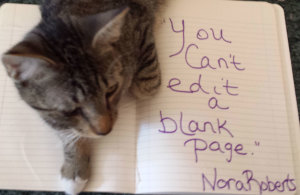
First drafts suck. “You can’t edit a blank page,” says Nora Roberts, as well as many well- known authors. And yet, why can’t I remember that?
Lately, I’ve been stuck on this scene, not because I’m stuck on what’s happening, but because it’s not perfect. And yet it’s my first draft.
It tends to happen to me a lot once I get to the middle. I’m editing this scene over and over again to make every emotional beat matter, instead of finishing the story and making notes for the 2nd draft (my normal chain of events if the heart continues to flutter and I can’t think of anything else).
I think I’m stalling. If I’m editing, then I’m still working on my story, but I don’t have to face that dreaded blank page. And it needs to be edited, right? Even if the experts say to write first, then edit. I’m stalling because I don’t know what to write next. The pages behind me are written, and I can keep going back to make them better. But the pages ahead of me are blank, and that’s scary.
My writer’s tip today is to just keep writing, push through that blank page. As much as I can edit what I’ve already written, I can’t edit a blank page. So if I don’t keep writing, I’ll have nothing left to edit!
by Angela Smith | Oct 24, 2015 | Writing
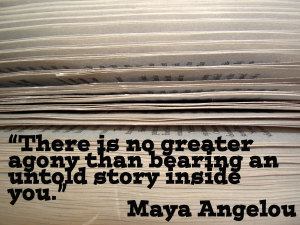
November is National Novel Writer’s Month. It’s when writers commit to writing everyday for an entire month for a total of 50,000 words. It takes place in November, which is the busiest time of the year. If you can write in November, you can write anytime, right?
I’m probably not going to do it again this year, but I wanted to talk about the setback and frustrations to motivate those thinking of taking on this daunting task. It’s a great way for would-be writers to write, and it’s also a great motivator for those already committed to writing, who might be suffering setbacks.
So for those of you who haven’t started writing but really want to, I challenge you to take on the NaNoWriMo. If you don’t think you can, don’t worry about word count. Just worry about getting words on the page. Even if it’s 100 words a day, or 5 minutes a day, it’s a daily word count and you’re getting somewhere.
My first NaNoWriMo experience was the best writing experience I’ve had yet, and I still can’t think of anything that compares. Every time I’ve tried it since, I have failed pretty significantly. I was in the middle of Final Mend and wasn’t getting anywhere with it. I unofficially took on the challenge of writing NaNoWriMo and mostly wrote first thing in the morning before my brain tackled the day’s activities. The words came out. Yes, it was a crappy draft and I had to go back and edit (much much later), but I finished my story and every moment when I wasn’t writing was an idea. The news sparked my brain to use certain events (i.e. flash floods), my daily life and emotions all sparked my creativity. It was like my mind was open and accepting of every idea in ways I could turn it to fit where I was stuck in my story. I wrote in the dark as a passenger with my husband driving as we went to an early morning doctor’s appointment. I wrote whenever I had an opportunity.
I haven’t always had that kind of success story and I’m not sure I ever will again. I’ve had another romantic suspense in my head since the beginning of time and tried to finish it during NaNo many a year, but so far it just wallows on my hard drive, unfinished. I started it during NaNo one year, and then it was just a great big puzzle piece I haven’t pieced together.
Some books are better left wallowing.
I loved every moment of my experience with finishing Final Mend during NaNoWriMo. And come to think of it, I am ready to start my newest Solace Ranch novella. NaNoWriMo might be the perfect opportunity.
by Angela Smith | Oct 17, 2015 | Writing
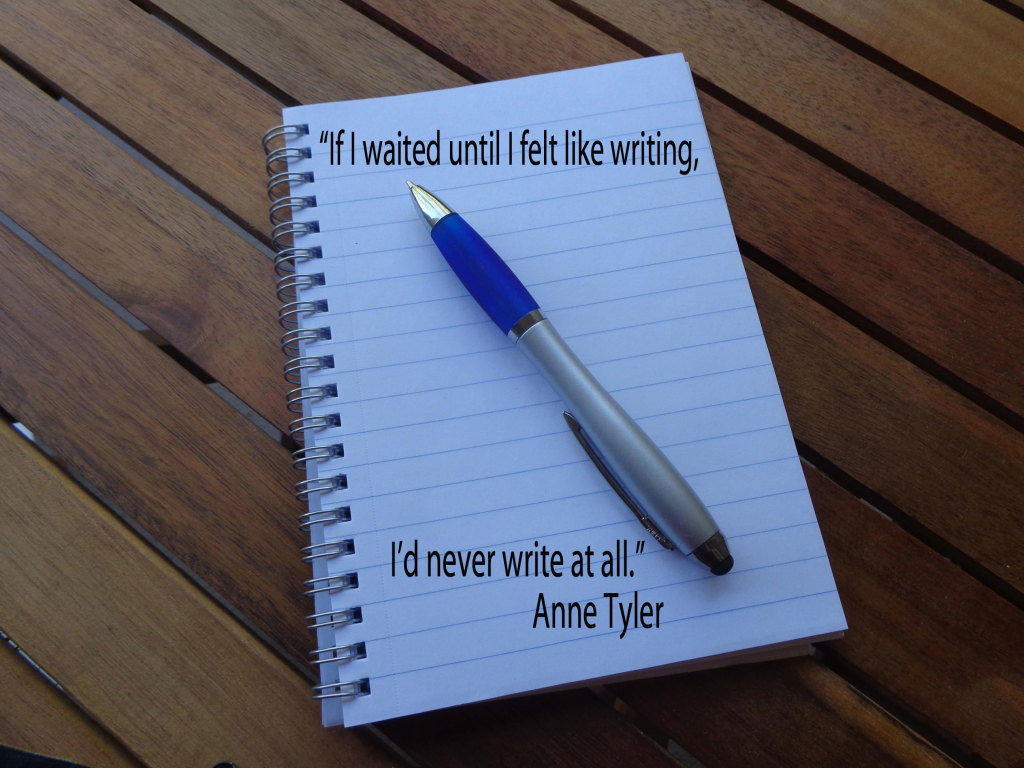
Welcome to Writersday, my first ever Saturday writing tips!
I’m always looking for inspiration. The motivation to sit butt in chair and write isn’t always that easy for me after working a long day and being completely brain dead. But recently I spoke with someone who dreams of writing, has always dreamed of writing but hadn’t made that opportunity for herself yet. Work, using all her creative energy at work, and feeling frazzled and brain dead at the end of the day keeps her from sitting down and do what she really wants to do.
Getting started is tough. Keeping going is tough.
Her comment made me realize that I can be that inspiration to others that I’m always looking for.
I’ve made it past that hurdle of publication. I written “The End” on a few books, have gone through the editing process, did all those things that those aspiring to start writing haven’t faced.
There are tons of how to write books out there, and I don’t think I’d be the right teacher for that. But many writers are curious to know how others do it. I know because I’ve always been curious, and I’m always wanting to learn. I believe that reading is the best tool a writer has, and I believe learning is the second best tool.
I don’t believe there’s a right way or a wrong way to write. Everything works differently for different people. Sometimes it works differently for me, depending on the day, the scene or even the book I’m writing. The only wrong way of writing is not writing at all. Heck, you can do it standing up, as long as you’re writing.
So today’s tip is a quote from Anne Tyler. You cannot wait until you are in the mood to write. If I waited until I was in the mood, I wouldn’t write near as often as I should. Those who wait until they are in the mood are hobbyists. If you want to make writing more than a hobby, you have to write!
So what are you waiting for?





